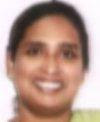Trafficking comparitively low in Goa: Dr PM Nair
Article appeared in Gomantak Times, Goa Edition, India
Goa is considered to have the highest levels of inter-state
trafficking of persons compared to other states, thanks to an NHRC
study. The man behind the report was an IPS officer Dr PM Nair, who
was the Principal investigator-Researcher for the project and the
present Project Coordinator of Anti Human Trafficking, UNODC, which is
training Goa police. PREETU NAIR catches up with Dr Nair, who reveals
that it is wrong to say that Goa has highest inter-state trafficking
compared to the other states. Besides, he candidly admits that some
NGO's working on the issue of trafficking in Goa, don't know the basic
difference between trafficking and prostitution.
Excerpts from the interview:
Q. How did you arrive at a conclusion that Goa has the highest levels
of inter-state trafficking in the country?
A. For the study, random sampling of 4006 persons across the country
was done. In Baina, we went around 150 houses. The study showed
various dimensions of inter-state and intra-state trafficking. From
this we came to a conclusion that intra-state trafficking is quite
high in other states compared to Goa.
Q. So you agree that it is wrong to say that Goa has the highest
levels of inter-state trafficking of persons compared to other states?
A. Yes. Absolutely. You can't say that Goa has the highest inter-state
trafficking compared to the other states. Infact, you can't say that
trafficking is high or low at any place it. Even if there is no
trafficking crime, trafficking may take place.
Q. Various NGO's are simultaneously conducting training programmes and
workshops for sensitising police about trafficking. Don't you think
too many cooks spoil the broth and create confused policemen?
A. Before we embarked on this training programme, we did a training
need analysis, for which we called senior and junior officers and
functionaries in the police station. I was surprised when over 50
percent of them said that they had attended few "workshops" in the
last five years in Goa and learnt that paedophilia exists and there is
sex tourism. However, they were blissfully unaware of how to address
the issue, investigate it and take it to its logical conclusion. The
so-called "workshops" were on limited issues, depending on the
requirement of the NGO or funding agency. However, UNODC's empowerment
programme is in partnership of GoI, state government and UN with a
regular, structured and focussed training program after which we
expect some accountability as we will be asking the police what they
have done.
Q. Don't you think that the NGO's in Goa themselves need to be trained
and sensitised about handling issues on trafficking?
A. There is no doubt about it because during the training needs
analysis we had invited few NGO's and we found that many of them were
still unaware of the dimensions of trafficking. Surprisingly, many
still believe prostitution is trafficking and trafficking is
prostitution. To remove this mystification there is a definite
requirement to train the NGO's working in this field.
Q. Did these NGO's in the past ever conduct workshops for sensitising
the police?
A. Yes, some of them have.
Q. Can you name the NGO's?
A. No. That won't be proper (smiles).
Q. How much of the money given to combat trafficking in persons has
actually reached the trafficked victims?
A. This is the problem with the workshop-conference culture. We at
UNODC don't believe in this and expect accountability.
Q. Don't you think that just training programs without proper
rehabilitation is futile to combat trafficking?
A. Yes. Law enforcement has to have corresponding activities by
development agencies. The networking between the police department and
other departments will be developed in such a way that once the police
rescue the person, the other departments will also have its
responsibility.
Wednesday, January 10, 2007
Subscribe to:
Comments (Atom)






